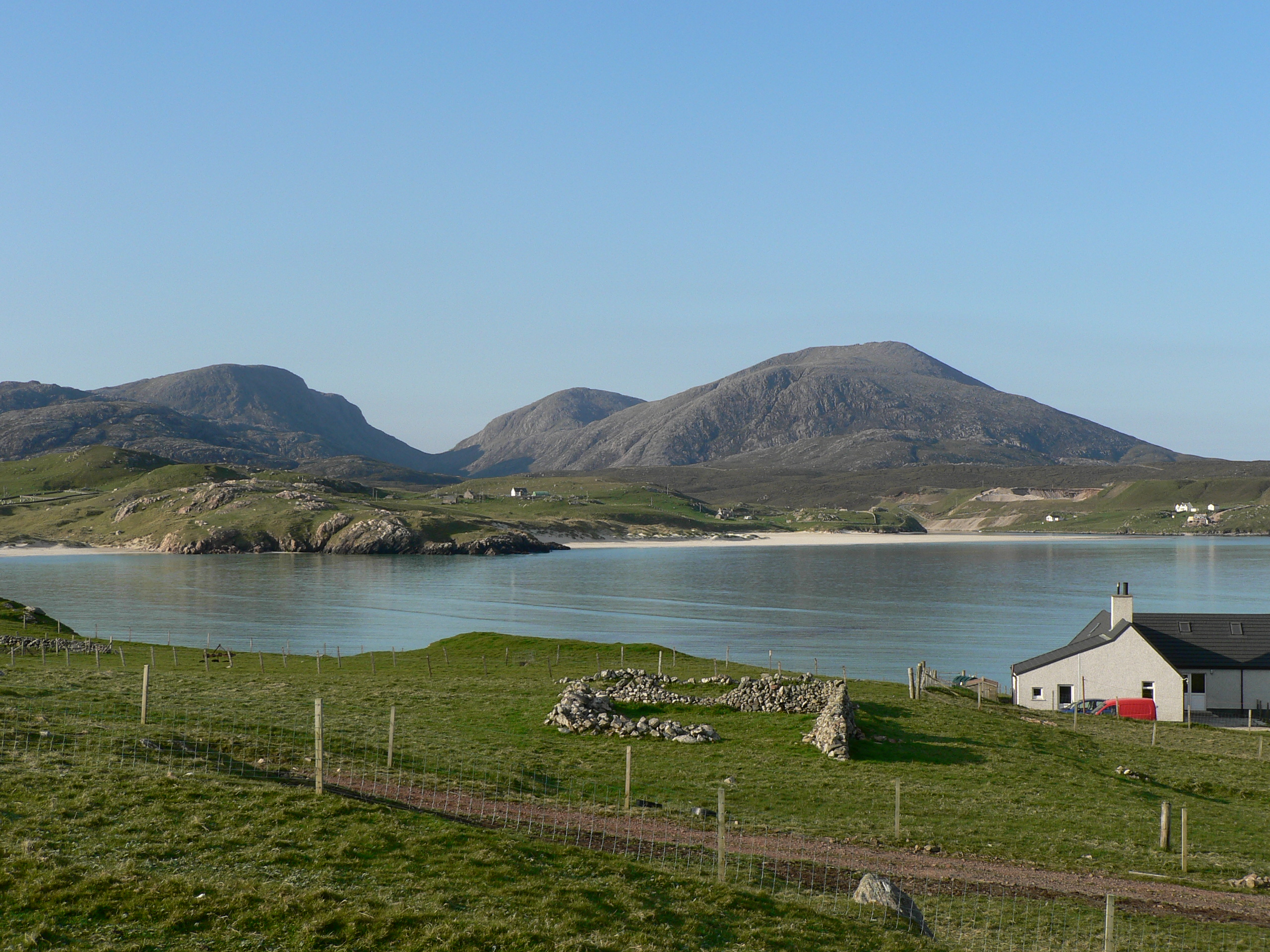Landing at the Flannans
Martin Martin, in his Description of the Western Isles of Scotland (1695) gives an account of the use made of the Flannan Isles at the time and the superstitions that attended a visit. (photo: Murdanie Macdonald)
The inhabitants of the adjacent lands of the Lewis, having a right to these islands, visit them once every summer, and there make a great purchase of fowls, eggs, down, feathers, and quills. When they go to sea, they have their boat well manned, and make towards the isalnds with an east wind; but if before or at anding the wind turn westerly, they hoist up sai, and steer directly home again. If any of their crew is a novice, and not versed in teh customs of the place, he must be instructed perfectly in all the punctilioes observed here before landing; and to prevent the inconveniences that they think may ensue upon the transgression of the least nicety observed here, every novice is always joined with another, that can instruct him all the time of their fowling; so all the boat’s crew are matched in this manner.
After their landing, they fasten the boat to the sides of a rock, and then fix a wooden ladder, by laing a stone at the foot ofit, to prevent its falling into the sea; and when they are got up into the island, all of them uncover their heads, and make a turn sunways round, thanking God for their safety. The first injuection given after landing, is not to ease nature in that place where the boat lies, for that they reckon a crime of the highest nature, and of dangerous consequence to all their crew; for they have a great regard to that ver piece of rock upon which they first set their feet, after escaping the danger of the ocean.
The biggest of these islands is called Island More; it has the ruins of a chapel dedicated to St Flannan, from whom the island derives its name. When they are come within about twenty paces of the altar , they all strip themselves of their upper garments at once; and their upper clothes being laid upon a stone, which stands there on purpose for that use, all crew pray three times before they begin fowling; the first day they say the first prayer, advancing towards the chapel on their kneews; the second prayer is said as they go round the chapel; the third is said hard by or at the chapel; and this is their morning service. Their vespers are performed with the like number of prayers. Another rule is that it is absolutely unlawful to kill a fowl with a stone, for that they reckon a great barbarity, and directly contrary to ancient custom.
It is also unlawful to kill a fowl before they ascend by the ladder. It is absolutely unlawful to call the island of St Kilda (which lies thirty leagues southward) by its proper Irish name Hirt, but only The High Country. They must not so much as once name the islands in which they are following by the ordinary name Flannan, but only the Country. There are several other things that must not be called by their common names, eg visk, which in the language of the natives signifies water, they call burn; a rock, which in their language is creg, must here be called cruey, ie ‘hard’; ‘shore’ in their language, expressed by claddach, must here be calle vah, ie a ‘cave’; ‘sour’ in their language is expressed by gort, but must here be called gaire, ie ‘sharp’; ‘slippery’, which is expressed bog, must be called ‘soft’; and several other things to this purpose.
They account it also unlawful to kill a fowl after evening prayers. There is an ancient custom by which the crew is obliged not to carry home any sheep suet, let them kill ever so many sheep in these islands. One of their customs is not to steal or eat anything unknown to their partner, else the transgressor (they say) will certainly vomit it up; which they reckon as a just judgement. When they have loaded their boat sufficiently with sheep, fowls, eggs, down, fish, etc, they make the best of their way homeward. It is observed of the sheep of these islands that they are exceeding fat, and have long horns.
I had this superstitions account not only from several of the natives of the Lewis, but likewise from two who had been in the Flannan isles the preceding year. I asked one of them if he prayed at home as often, as fervently as he did when in the Flannan Islands, and he plainly confessed to me that he did not; adding further, that these remote islands were places of inherent sanctity; and that there was none ever yet landed in them but found himself more disposed to devotion there, than anywhere else.
If you’d like to try any of this, Seatrek do daytrips and Island Cruising takes it in too.

